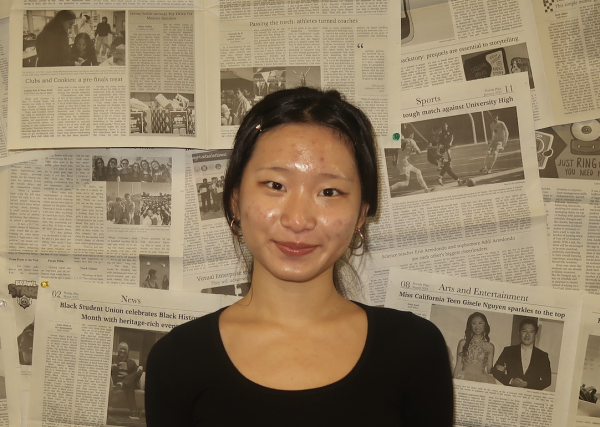Students at Portola High are notorious for cramming when it comes to tests. This last minute studying culture worsens particularly every May — AP season — one of the most extreme times of the year when many students cram under pressure for their AP exams.
Many students at Portola feel pressured to study relentlessly right before their AP exams, despite already demonstrating proficiency in class, due to feeling the need to surpass their peers academically. Consequently, they end up cram studying under stress and pressure. In order to foster a less stressful school environment, students should put an end to cramming culture.
Students, especially sophomores and juniors who tend to take many APs, find themselves trying to memorize definitions, retain formulas and remember theories a week before — or even the day of — their AP test, according to sophomore William Kim.
“The academic environment at Portola is so tight on time, and there is just a heavy workload being placed on the students — we always end up being chased by our classwork,” Kim said. “In order to finish [an assignment], you have to put the other away. Then it just starts snowballing until you don’t have much time to study. And when you realize that there isn’t much time to study, you start cramming.”
Some APs demand more study time than others which leads to excessive cramming for certain courses, according to junior Nina Yoon. Nevertheless, cramming for any subject has more drawbacks than benefits, if any, according to Children’s Neuropsychological Services.
“There aren’t a lot of benefits to cramming except for the fact that you’ll know everything for the test,” Yoon said. “Since you’re learning in such a short amount of time, you’ll be able to recall things during the exam. But there are definitely more downsides — you’re not going to remember the material in the long-term, it’s really stressful and you won’t get a lot of sleep before the test.”
Senior Shanaaz Fasail said that in her experience, Portola High’s academic culture normalizes picking up excessive workloads, leading to an overwhelming school experience that makes cramming necessary. However, cramming with so many other students may simply be a method of community building.
“It’s easier to cram when all your friends are cramming, and it’s easier to study long term when all your friends are doing that too. You need that kind of support system,” Faisal said. “At Portola, cramming is so normalized that it’s just like, ‘Oh, that’s how I study.’ That’s just how it works.”
Cramming has become the norm at Portola High. As a community, students must make a change to this harsh academic environment. Forming AP exam study groups, starting AP reviews early on in the year, or simply enrolling in fewer AP courses are all ways to end cramming culture. By preventing the further normalization of cram studying, students will feel less stressed.




